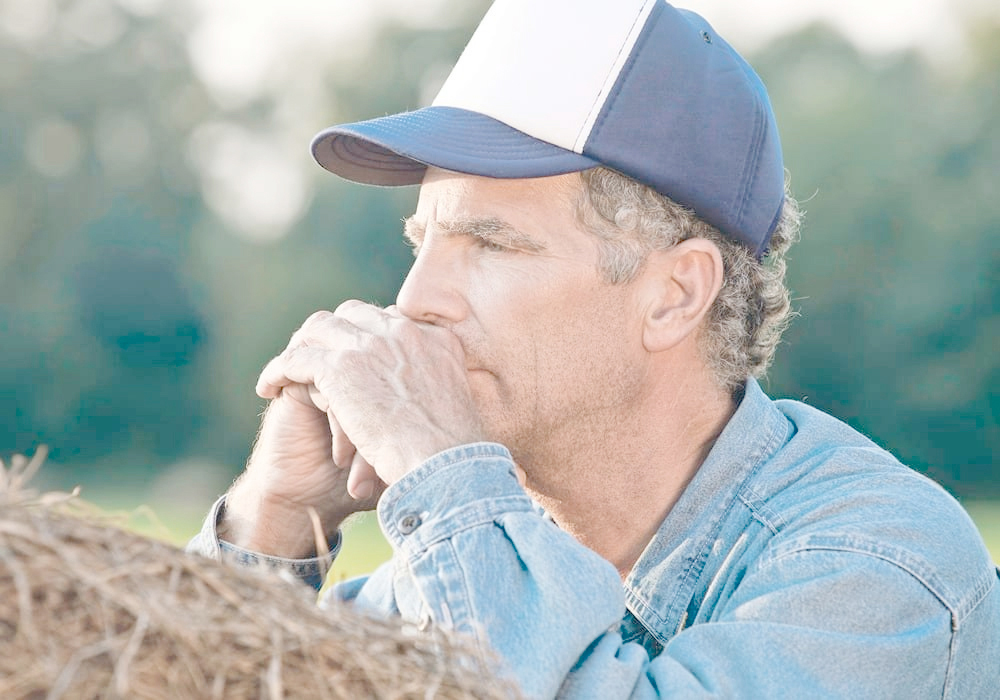Farm organizations want the vocation’s physical and mental strains to be included in daily planning discussions
Farming conferences around the province have been adding a new topic in recent years — health.
Booths and presentations have been raising awareness about mental and physical health problems that could be a concern for farmers and their families.
Megz Reynolds, executive director of the Do More Agriculture Foundation, has been raising awareness about the mental health crisis in agriculture for nearly 10 years, openly discussing her own challenges and concerns through her social media channels. Speaking at the Advancing Organics conference in Saskatoon at the end of March, Reynolds said farmers are very stoic, and that means they’re not always comfortable talking about their mental or physical health struggle.
Read Also

Vancouver port says it has improved efficiency
Grain movement has been strong at the Port of Vancouver due in part to a new centralized scheduling system.
She said it takes people seeing something many times before they’re able to act on a problem.
“The more we’re able to normalize that conversation, have it just part of our everyday and show that there are resources here, there’s people talking about it. You have a lot of speakers now in conferences, which is really exciting. That just helps to break down that stigma.”
Reynolds promotes this mental health conversation into workplace safety with printable DoMoreAg resources available to go up around farm shops.
She told a story about how her own sleep deprivation could have had disastrous consequences.
“I showed up to the field in the morning fully convinced I had to finish that field. I fired up the tractor. My monitors are coming on. My GPS screen comes on, and I found that I finished seeding that field the night before. I had no memory of doing that, because I was running on such little sleep. There was nothing safe about that situation the night before.”
She said pushing through, especially when it’s unsafe, is no longer this badge of honour at her operation. That has meant putting the health and safety of her entire crew first.
Sometimes that’s as easy as checking in with friends and family. Other times that’s knowing when people need professional help.
“If you’re not comfortable having a conversation, be aware of what the resources are, and comfortable enough to reach out to someone that you see as maybe going through something and connect them to resources that exist,” she said.
Lack of sleep, stress, and anxiety, along with the physical strains of farming, can have other health effects. Other medical organizations are taking notice.
Last year’s Canadian Western Agribition was the first time Hearing Life Canada had a booth raising awareness and education about hearing loss prevention. Nestled among the ranching equipment and other businesses, the booth in the AffinityPlex was a far cry from the wellness expos and health fairs they usually attend.
Jason Schmiedge, Hearing Life’s regional manager for Saskatchewan and northeastern Alberta, said this was a great way to connect with farmers of all ages, but it’s the young farmers who are more proactive about all aspects of their health.
“They’re more open, asking more questions about what they can do to protect their hearing. That’s how our involvement came with Agribition this time.”
Unlike other health issues, hearing loss comes so gradually that people adapt to it before they realize they have a problem. Farmers are consistently exposed to loud impact sounds like banging and hammering, as well as gunshots when hunting. This can damage hearing, as delicate hairs in the ear canal can wear out over time.
However, Schmiedge’s main message for farmers that most hearing loss is preventable with readily available hearing protection.
“We do customized hearing protection so it’s a little more of a precise fit, (if) people have troubles with generic ones. The main take-home is that hearing loss is preventable, but once hearing loss is present, we can’t reverse it.”
Mental strain has physical implications as well. Schmiedge said he is seeing more cases of tinnitus, ringing or buzzing, which can be caused by noise or the body’s response to stress.
Schmiedge said farmers shouldn’t feel they’re too tough to get help with hearing health.
“We know that mental strain is very tough nowadays, and they need to realize that there’s things that can be done to help them that they shouldn’t hesitate to reach out.”
SaskOrganics program co-ordinator Deb Tuchelt said this was the first time it had any kind of health-centred presentation on a meeting agenda. She said these conversations are fairly new, but it has been great to see them at more and more ag shows.
“People are only going to be (only) so good and so productive if their health is not co-operating. It really is a matter of efficiency too, to make sure that both your physical and mental health is in check.”

















